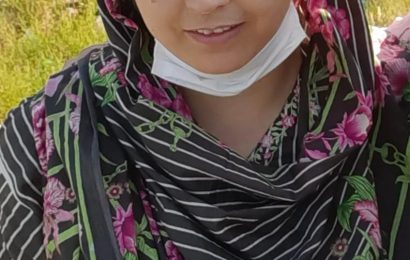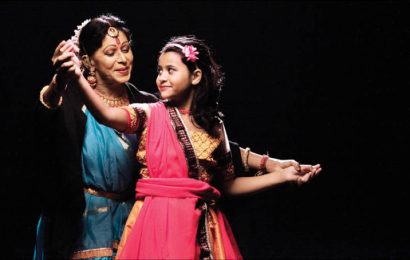Raksha Goyal is a respected name in the world of Dietary and Nutrition and expert of par- excellence in this regard. In an exclusive interview with The News Kashmir Magazine, Raksha Goyal talks to Rameez Makhdoomi.
Rameez Makhdoomi: A Bit About Your Personality?
Raksha Goyal: Myself Raksha Goyal, Chief Nutritionist Synergy hospital, Indore (Madhya Pradesh).I am practicing since last 6 years in the field of nutrition. Have presented and published various research papers in the national and international journals on nutrition.
Associated with NGO’s and conducting nutritional awareness programs for the community benefits. Synergy hospital is a multispecialty hospital in the Indore city. We are committed to provide a better healthcare facility and world class treatment to the patients.
Rameez Makhdoomi: Your Take On Eating habits of Indian people?
Raksha Goyal : Indian food is as diverse as the Indian culture with as many cuisines as the number of states. A common eating habit across the country is that Indians love to mix their food and add spices to almost every cuisine.
Meals are most often eaten with family members. Indian families create their eating habits around the schedules and preferences of everyone in the family. Women traditionally do most of the food preparation for the household.
There are three main meals in the Indian culture, so the meal timing is similar to western cultures. In India, most people eat a morning meal, a mid-day meal and an evening meal. The evening meal is generally the biggest meal of the day, followed by the mid-day meal.
People in India consider a healthy breakfast, or nashta, important. They generally prefer paranthas, dhokla, idli, dosa, uttapam, poha along with milk or curd.
Lunch in India usually consists of a main dish of rice or rotis made from whole wheat, two or three kinds of vegetables, curd and sweets. Paan (betel leaves), which aid digestion, are often eaten after lunch in parts of India. India families will gather for “evening breakfast” to talk, drink tea, and eat snacks. Dinner is considered the main meal of the day, and the whole family gathers for the occasion.
Rameez Makhdoomi : What According To You Is Balance diet in Indian context?
Raksha Goyal : In India food is linked to one’s culture and identity so it varies from region to region. But here are some healthy staple ingredients in Indians diet:
- Chapatti: Chapatti is made up of whole grains including wheat, Maize, Bajra, Jawar, Soyabean. It is a very good source of fiber.
- Pulses: People include Pulses or dal in their regular diet in the form of Sambhar, sprouts, or soya badi. It is the main source of protein in the Indian diet.
- Milk: Indian people mostly consume milk in the form of either curd or buttermilk. Kheer is another form of milk which is taken as sweet dish.
- Vegetables and fruits: Mostly seasonal fruits and vegetables have been consumed by Indian people.
- Herbs: Herbs are usually included in the vegetables during the preparation.
Rameez Makhdoomi: What Diet Tips You Can Offer our readers for Harsh winters?
Raksha Goyal: Several foods give the body nutrients that actually help to promote wellness, and this is very important during the winter months when many illnesses circulate through the population.
Possibly the best benefit though, is that seasonal food is always interesting, as each season brings a new crop of foods that you haven’t had for an entire year. Before you’ve had a chance to tire of its bounty, the season changes to bring new, flavorful foods to add to your pantry.
- Boost immunity: Include seasonal fruits and vegetables like Guava, Radish, Lemon, Carrot and Green leafy vegetables in diet as it contain antioxidants.
- Stay hydrated: Drink at least 2 litter water per day whether you are feeling thirsty or not.
Rameez Makhdoomi: How diet is related to the diseases?
Raksha Goyal : Healthy living not only makes you feel good, but it can keep you from experiencing many diseases and health conditions. Obtaining adequate nutrition is an essential part of living a healthy life. Poor nutrition can result from failure to eat enough or failure to choose the right kinds of foods which may lead to some life threatening diseases as:
- Obesity:Certain types of foods and eating habits such as snacking,binge-eating, and eating out can contribute to excessive weight gain.
- Diabetes:Obesity, high blood pressure and increased cholesterol, unhealthy eating habits are strong risk factors for developing diabetes.
- Anemia: A condition of low hemoglobin level in the blood. Common reasons are poor intake of Iron, vitamin C, B etc.
- Osteomalacia and rickets are caused by a deficiency of vitamin D, calcium or phosphate.
- Hypertension: A high sodium intake is generally believed to increase the risk of having high blood pressure.
- Heart Disease: Leading cause of illness and death in India. Obesity, diabetes, higher intake of junk foods, excessive salt intake is some of the risk factor for heart disease.
- Cancer: The same high-fat diet associated with heart disease also may increase the risk of developing certain cancers.



